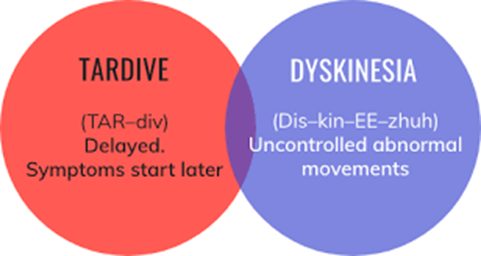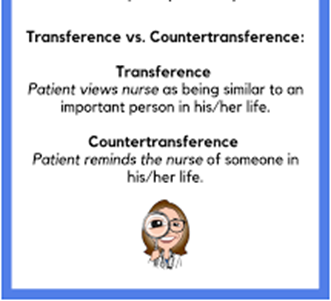Common problems in a therapeutic relationship include all of the following except
The client
The environment
Financial resources
The caregiver
The Correct Answer is A
Choice A rationale: The client is not a problem in a therapeutic relationship but is instead the focus of care and their needs and preferences be considered in their care process.
Therefore, the client should also be encouraged to participate actively in the treatment and to provide feedback on the progress and challenges.
Choice B rationale: The environment, including issues like noise, interruptions, or lack of privacy, can impact the effectiveness of therapeutic interactions.
Choice C rationale: Financial resources, for instance, lack of insurance coverage, high costs of healthcare, and limited access to quality healthcare can impair effective patient care resulting in stress and frustration for the patient.
Choice D rationale: The caregiver's own challenges, such as burnout, communication issues, and lack of knowledge, skills, and experience can impair the quality of care provided to a client thus affecting the therapeutic relationship.
Nursing Test Bank
Naxlex Comprehensive Predictor Exams
Related Questions
Correct Answer is C
Explanation
Choice A rationale: absence of physical and mental movement refers to catatonia that can occur in severe depression or schizophrenia.
Choice B rationale: akinesia refers to the absence of voluntary movement and can be seen in individuals with Parkinson’s disease or as a side effect of some antipsychotic medications.
Choice C rationale: these are signs and symptoms of tardive dyskinesia which is a serious side effect of antipsychotic therapy resulting from the damage of nerve cells controlling movement and is irreversible especially when detected late.
Choice D rationale: this refers to dystonia which is a condition characterized by abnormal muscle tone resulting in painful muscle spasms and abnormal postures. This is a side effect of some antipsychotic medications.

Correct Answer is D
Explanation
Choice A rationale: Transference involves the client projecting feelings or attitudes onto the healthcare provider and can affect the therapeutic relationship.
Choice B rationale: Environmental problems are external issues arising from the individual’s physical and social setting such as interruptions and noise and can affect the therapeutic environment, not the nurse's emotional responses.
Choice C rationale: Resistance refers to the situation where the client consciously or unconsciously opposes or is reluctant to engage in therapeutic interventions and hinders treatment progress and outcomes.
Choice D rationale: Countertransference occurs when the healthcare provider projects their feelings and emotions, experiences, or unresolved issues onto the client. The nurse's overprotective feelings interfere with the objectivity and effectiveness of the therapeutic relationship.

Whether you are a student looking to ace your exams or a practicing nurse seeking to enhance your expertise , our nursing education contents will empower you with the confidence and competence to make a difference in the lives of patients and become a respected leader in the healthcare field.
Visit Naxlex, invest in your future and unlock endless possibilities with our unparalleled nursing education contents today
Report Wrong Answer on the Current Question
Do you disagree with the answer? If yes, what is your expected answer? Explain.
Kindly be descriptive with the issue you are facing.
